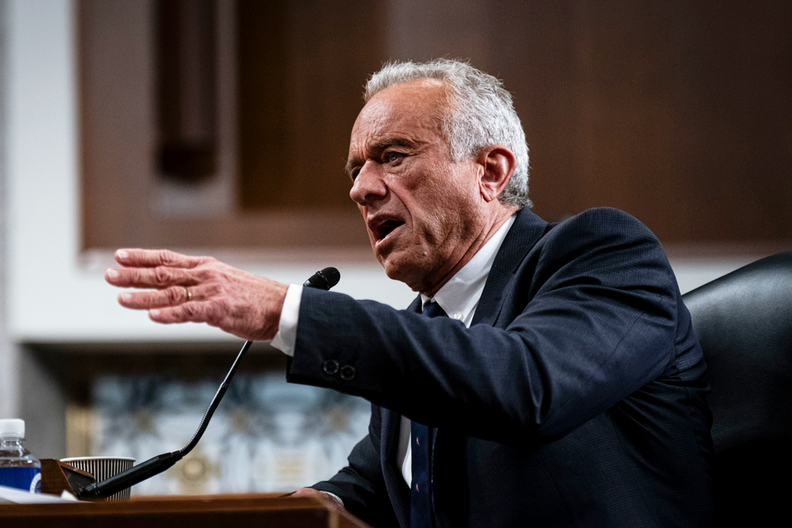
DiYES International School – Childhood vaccine schedule has become a focal point of Robert F. Kennedy Jr.’s new role as U.S. Secretary of Health and Human Services. During his first speech to thousands of Health and Human Services employees, Kennedy made a notable promise. He vowed not to alter the existing childhood vaccination schedule but also announced plans to investigate it further.
In his address, Kennedy assured that he would not modify the vaccination schedule, a decision he made to gain the crucial vote from Senator Bill Cassidy. Cassidy, a Louisiana physician, had concerns over Kennedy’s past stance on vaccines. After receiving reassurances, he voted in favor of Kennedy’s confirmation.
Despite these promises, Kennedy’s plan to review the schedule has raised questions among some observers. His comments suggest he may examine the current vaccination recommendations, which pediatricians across the country rely on. These recommendations are developed by the CDC’s Advisory Committee on Immunization Practices after careful review of scientific data.
“Read about: Understanding Bone Fractures in Children: Causes and Care”
Kennedy also introduced a new initiative: the “Make America Healthy Again” commission. This commission aims to investigate various health concerns affecting children, including vaccines. The commission will also focus on issues such as food additives, pesticides, and other factors believed to contribute to chronic illnesses like diabetes and obesity.
Kennedy emphasized that the commission would conduct a thorough investigation into issues that have traditionally been “taboo or insufficiently scrutinized.” This includes childhood vaccinations and the potential risks they may carry. However, Kennedy did not directly call for changes to the current vaccination schedule.
Senator Cassidy, who had voiced concerns about Kennedy’s anti-vaccine history, ultimately supported the nomination. During his Senate speech, Cassidy reiterated his belief in the safety and efficacy of vaccines, stressing that “the science is good.” He explained that the CDC’s recommendations are based on extensive research and are crucial in determining the safest and most effective vaccination timeline for children.
Cassidy had stated that he had “intense conversations” with Kennedy before offering his support. One of the key promises Kennedy made was to maintain the CDC’s vaccination guidelines without making changes.
“Read more: Trends of Millennial and Gen Z Parents Choosing Private Schools”
Kennedy’s speech has also drawn criticism from some public health experts. Dr. Paul Offit, an infectious disease expert at Children’s Hospital of Philadelphia, expressed concerns about Kennedy’s anti-vaccine stance. Offit, who developed the rotavirus vaccine, pointed out that Kennedy’s advocacy for limiting vaccine availability could harm public health efforts.
Offit’s concerns highlight the broader debate over vaccine safety and the influence of prominent figures like Kennedy, who has raised doubts about vaccines in the past. Despite this, Kennedy assured HHS staff that he would remain open-minded in his new role and encouraged them to do the same.
While Kennedy has committed to not altering the childhood vaccine schedule, his decision to review it as part of a broader public health investigation has raised questions. The involvement of the new commission and the ongoing support for vaccines from many health experts underscore the complexity of this issue. Kennedy’s leadership will likely shape the future of public health policies related to vaccines, childhood illnesses, and overall health strategies in the coming years.